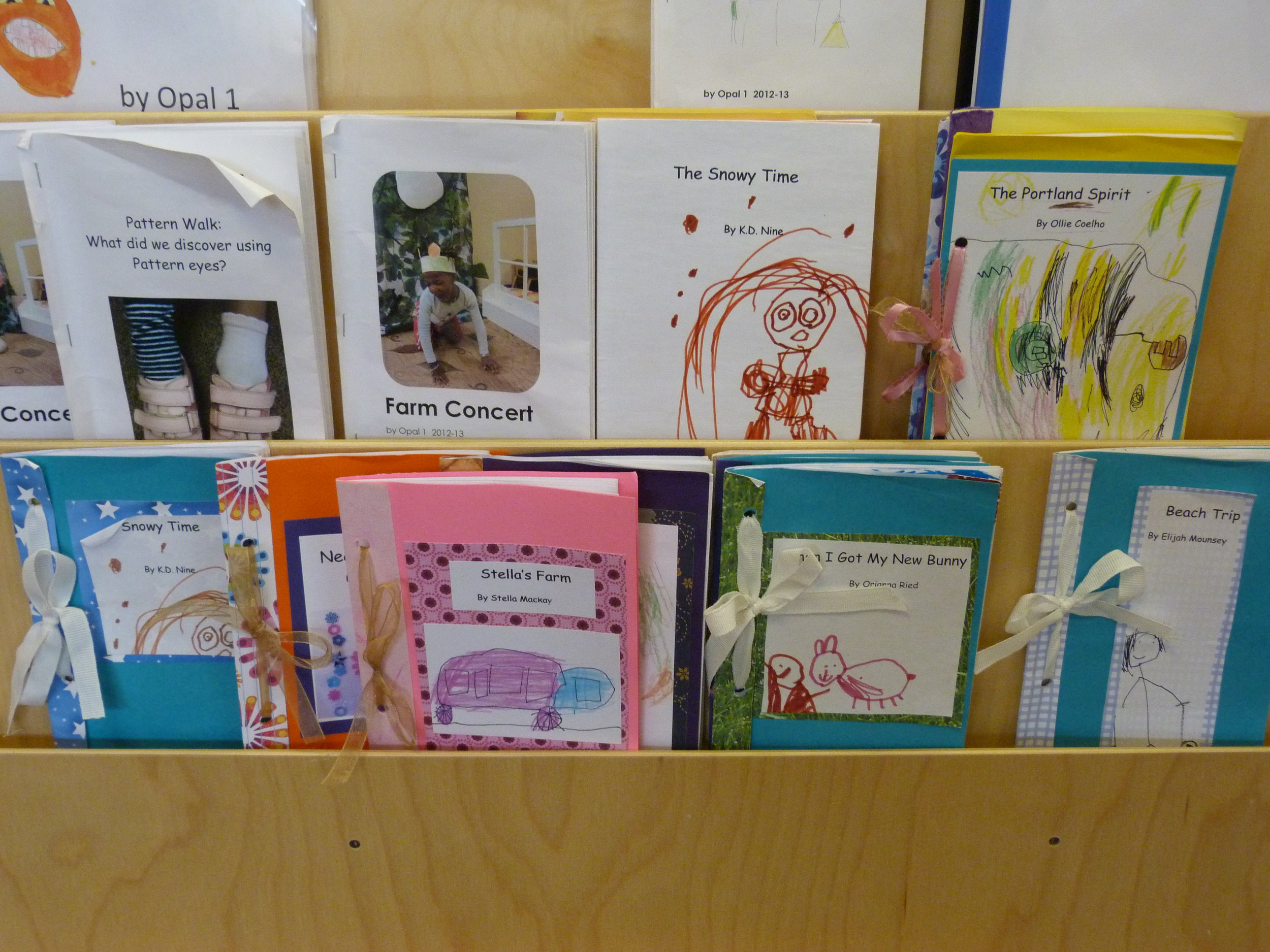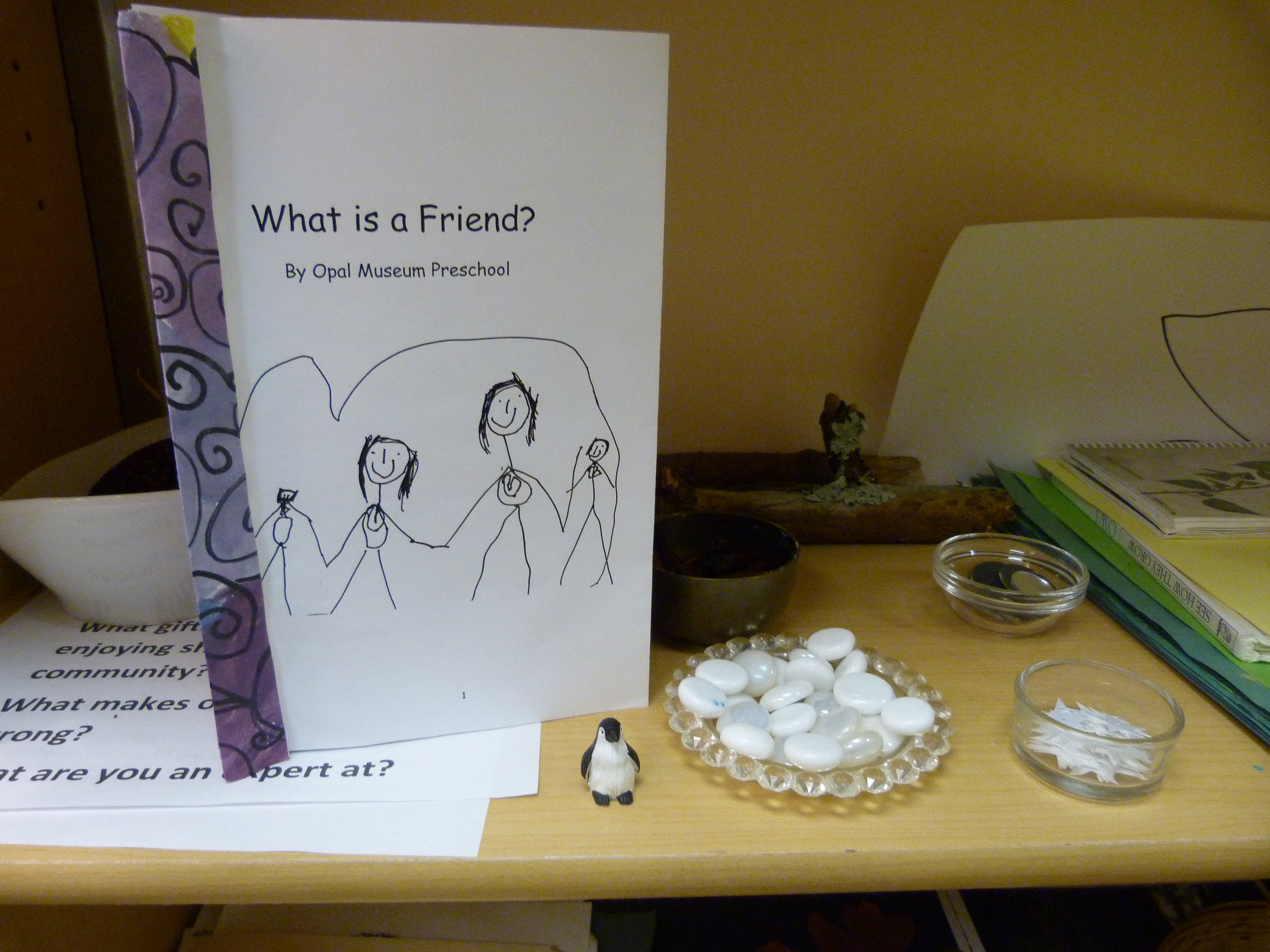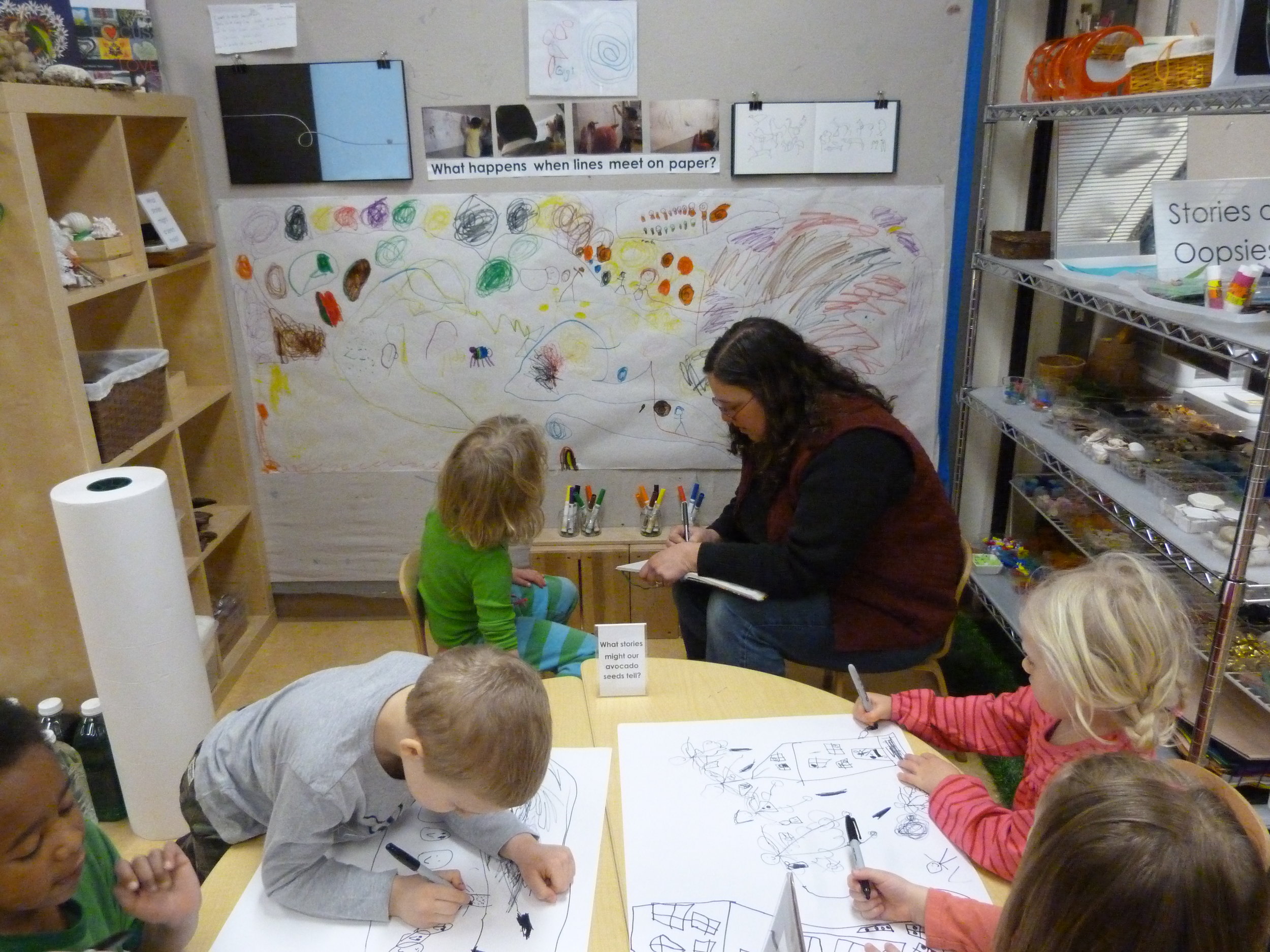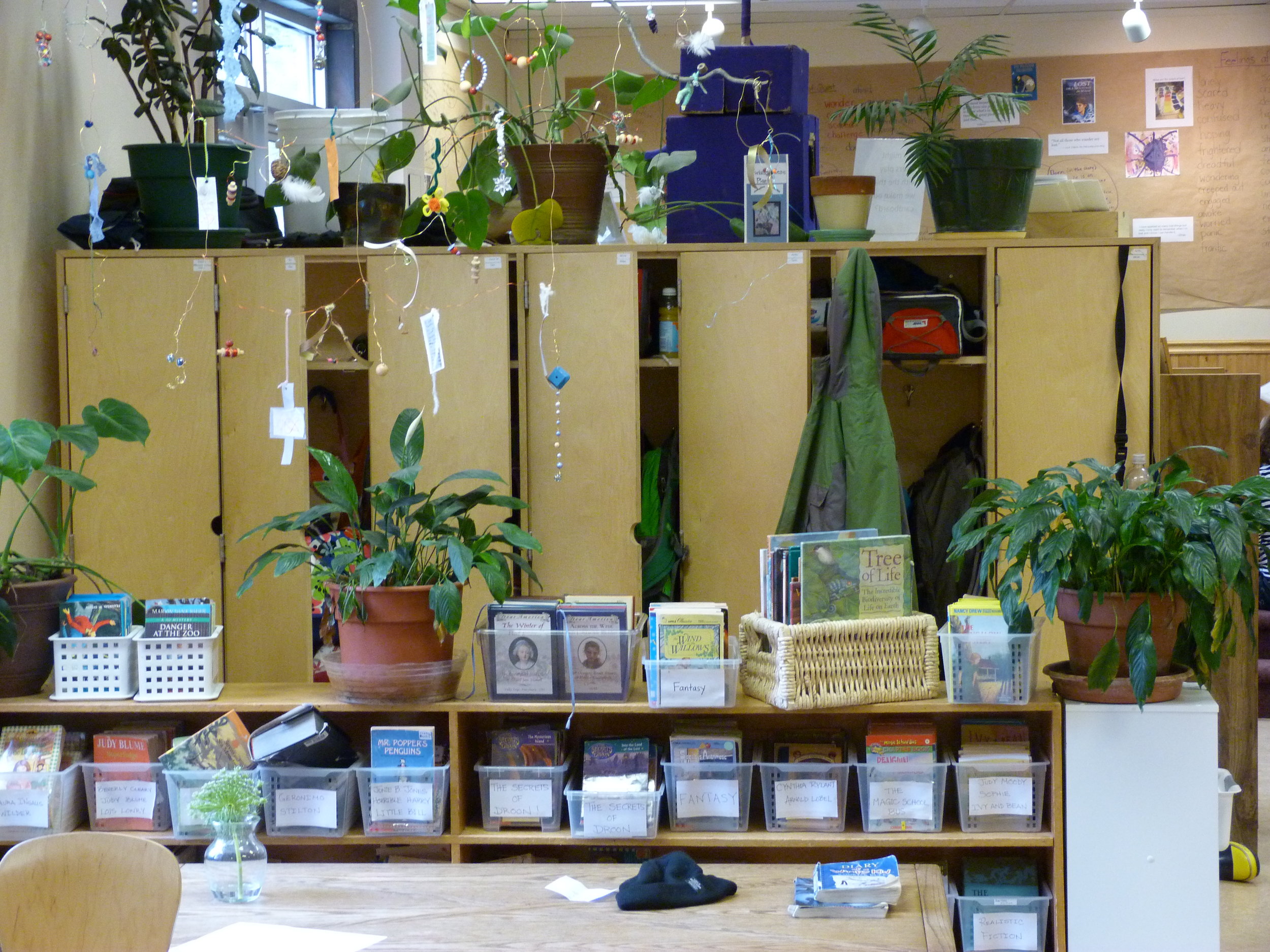 We, Ena Shelley and Louise Cadwell, just returned from an amazing and wonderful educational week at Opal School of the Portland Children's Museum, a public charter school now 11 years old. This is the second year that Butler University has offered an intensive week-long seminar entitled: Creativity, Imagination and Learning: A Field Study in Early and Elementary Education based at Opal School in Portland, OR. Ena Shelley (Dean of the College of Education at Butler University) and Louise co-teach the course along with Susan MacKay and the staff at Opal. Perhaps because we had laid the groundwork last year, this year, we were able to journey even deeper into the work, the philosophy and practice at Opal. This year, we were also ready to make more and stronger connections between our experience during the week and our contexts and schools back home.
We, Ena Shelley and Louise Cadwell, just returned from an amazing and wonderful educational week at Opal School of the Portland Children's Museum, a public charter school now 11 years old. This is the second year that Butler University has offered an intensive week-long seminar entitled: Creativity, Imagination and Learning: A Field Study in Early and Elementary Education based at Opal School in Portland, OR. Ena Shelley (Dean of the College of Education at Butler University) and Louise co-teach the course along with Susan MacKay and the staff at Opal. Perhaps because we had laid the groundwork last year, this year, we were able to journey even deeper into the work, the philosophy and practice at Opal. This year, we were also ready to make more and stronger connections between our experience during the week and our contexts and schools back home.
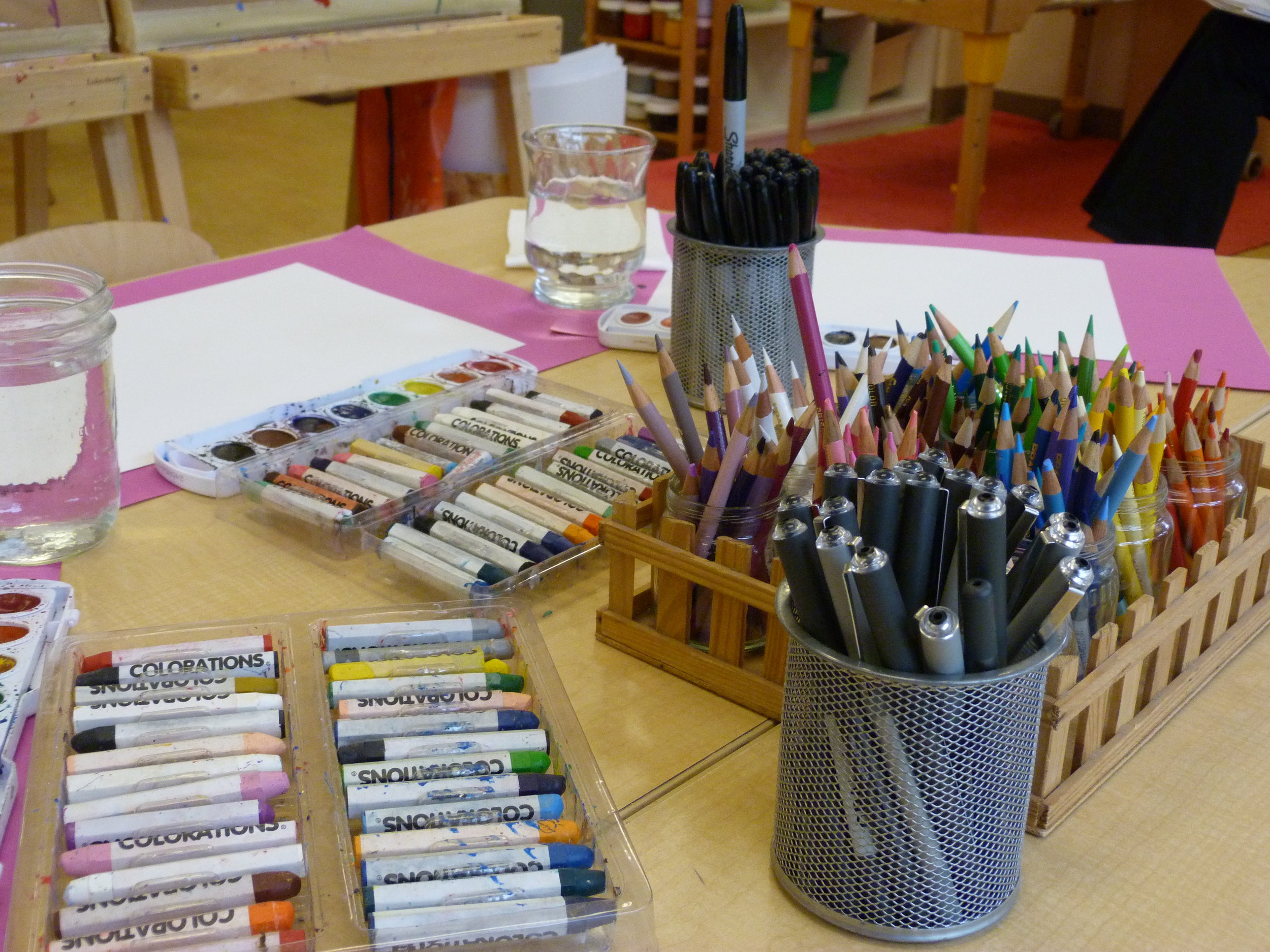
Last week, participants were struck over and over again by the language used by all the teachers at Opal that invites children's best selves and best thinking into the classroom in every discipline and during every social occasion. For example, "James, would you share your thinking about this idea?" "Could we make room for Cindy's voice?" "Jane, who would be a good thinking partner for you?" "What does it mean to be wild?" "Who lives underground?" "What can your hands do with clay?" "Where do stories come from?"
This practice of language choice and framing open questions, has grown over the years, influenced greatly by the practice in Reggio Emilia, Italy and also many authors and educators here in the United States, among others, Ellin Keene and Karen Gallas in literacy, Catherine Fosnot and Maarten Dolk in mathematics, and David Orr and Fritjof Capra in systems thinking and sustainability. A book that they are reading at Opal right now is Opening Minds: Using Language to Change Lives by Peter Johnston. Louise read it before she arrived in Oregon and it is worth ordering right now to read right away. So applicable immediately to your classroom and school, it is filled with examples and stories about what kind of language and stance supports a flexible learning mindset and what closes learning down to a fixed mindset. Johnston cites Carol Dweck's research and takes it further.
Every time we go, we come home from Opal thinking something like this, "This is it. If you want to see complex theories in action, learning for the future taking place right now, rich, inspiring places and spaces and the real-life, hard work of collaboration that is paying off for children and their community, go to Opal." And, we are always re-inspired to do the work that we do with renewed insight and clarity, purpose and passion.
You can gain a peek into the life and experience of Opal by reading their blog. Every week there are posts, stories of learning, links to books and other worthwhile events and opportunities. Louise will write her next few posts for the Cadwell Collaborative blog on aspects of last week because there is so much more to reflect on and to share. In the meantime, we suggest that you follow the Opal blog and take advantage of all that they have to offer in professional development even if you can not go there. There is an on-line course that you can sign up for now that was very successful the first time it was offered. There is also a free webinar on Sunday the 24th offered by NCTE and Susan MacKay.
In a world where we are all looking for mentors, leaders, and paradigm shifters, Opal is one place where you will find them. Thank you, thank you, Opal School.

